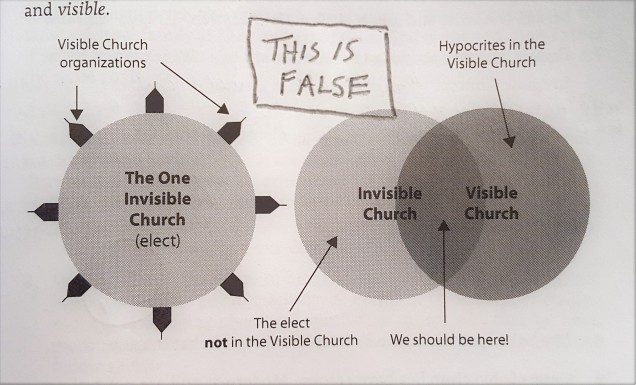
Introduction
We have dealt with various defenses of John Piper’s rejection of Salvation Sola Fide over the last several posts. We first dealt with the claim that he was really just pointing out that Justification and Sanctification are inseparable (HERE). I agree entirely. But both are benefits of union with Christ, faith alone being the instrumental cause of this union. We next looked at the claim the Piper is really just pointing out that “salvation” is a broader term than justification (HERE). I grant this as well, but justification simply is the present declaration of the future verdict, and both are based on the merits of Christ, received by faith alone. And last we responded to Dr. Mark Jones’ rejoinder that Piper is really just infelicitously employing the Reformed Scholastic distinction between Right to Salvation and Possession of Salvation (HERE). We concluded from Thomas Goodwin that the Right to Salvation includes the “whole lump,” not only justification but also final salvation. Justification does not equal Right and final salvation does not equal Possession. There is a right to the whole and a possession of the whole. And the right to the whole lump is had by faith alone.
We come now to another defense that seems to be popping up here and there, particularly via The Calvinist International. The rub seems to be that the best lights of the Reformed tradition have always acknowledged a “Double Justification,” one by faith and the other by works. The implied argument is that Piper is really just talking about these two historically allowable justifications, but modern evangelical and Reformed readers can’t see this, being unaware of the tradition and frightened by words and phrases that don’t fit the modern gloss. But this is absurd. Simply pointing out that there are different senses and uses of the concept “to justify” covers no ground toward solving this dispute. Remember, what is at issue is Piper’s claim that only justification is through faith alone whereas Final Salvation is through faith and fruits, good works being proper conditions and requirements for attaining Heaven (see HERE). So simply pointing out that we can use the word “justify” when speaking of works is irrelevant to the question of whether we are saved now and on the last day by the merits of Christ alone, received by faith alone, or by faith plus “sufficient” fruit.
Continue reading →





